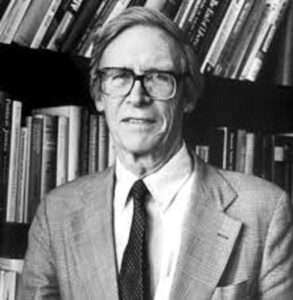The Volokh Conspiracy
Mostly law professors | Sometimes contrarian | Often libertarian | Always independent
Happy 100th Birthday, John Rawls!
Today is the 100th birthday of the most influential political philosopher of the second half of the twentieth century.

Today is the 100th birthday of the late John Rawls, probably the most significant political philosopher of the 20th century. Rawls' most important and influential works were A Theory of Justice (1971) and Political Liberalism (1993).
University of Virginia Law Professor Larry Solum has a helpful post on Rawls' importance to legal and political theory here. The Stanford Encyclopedia of Philosophy has a more general overview of his work.
Solum also comments that "Rawls, the human, was generous and kind--perhaps to a fault." I can testify to that based on personal experience.
In this memoir, written for the Hebrew Immigrant Aid Society (HIAS) (pp. 24-26), I describe how I had a lengthy phone conversation with Rawls when I was a high school sophomore. My teammates and I thought Rawls (who lived in the same town as we did) could provide some useful insights on an argument we were developing for an upcoming high school debate tournament.
I was the person nominated to actually call Rawls, because, as one teammate put it (probably mistakenly), "you guys have a lot in common." Although Rawls was then the most famous political philosopher in the world, he was too nice to just tell me to take a hike. So we discussed the issue for a long time. Ultimately, I didn't get much out of him that was useful for the tournament. But I will always remember how the world's most prominent political theorist took the time to discuss his writings with an obscure high school sophomore.
In a section of Chapter 1 of my most recent book, Free to Move: Foot Voting, Migration, and Political Freedom, I contend that Rawls' theory of the "fair value" of political liberty (outlined in Theory of Justice), requires giving broad scope for people to "vote with their feet," which provides more value (by Rawls' own criteria) than conventional ballot-box voting. This argument would probably have horrified Rawls himself, if he were alive to read it. But it would have been fascinating to have the opportunity to discuss the issue with him.


Show Comments (44)